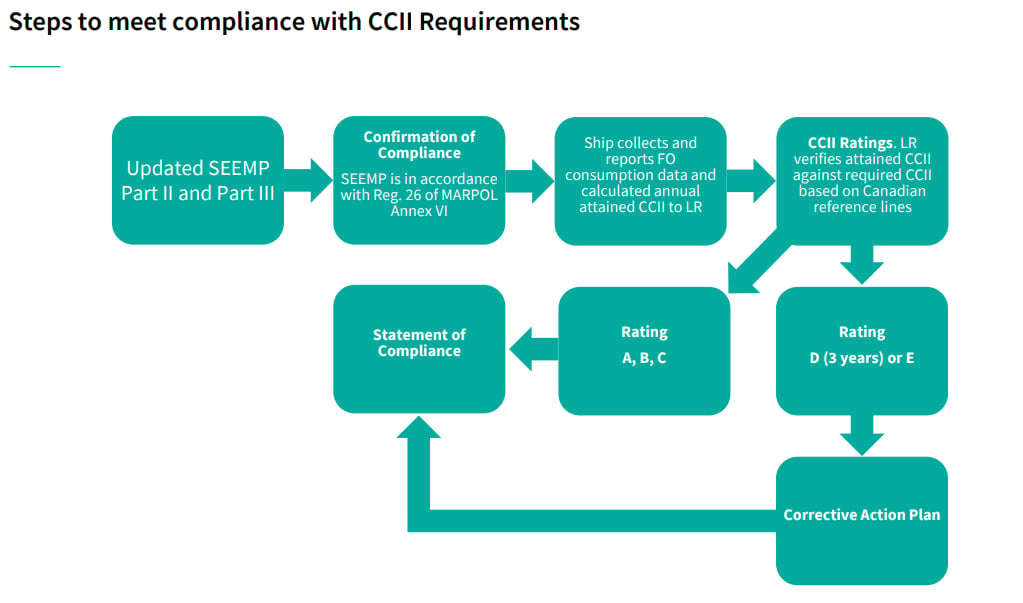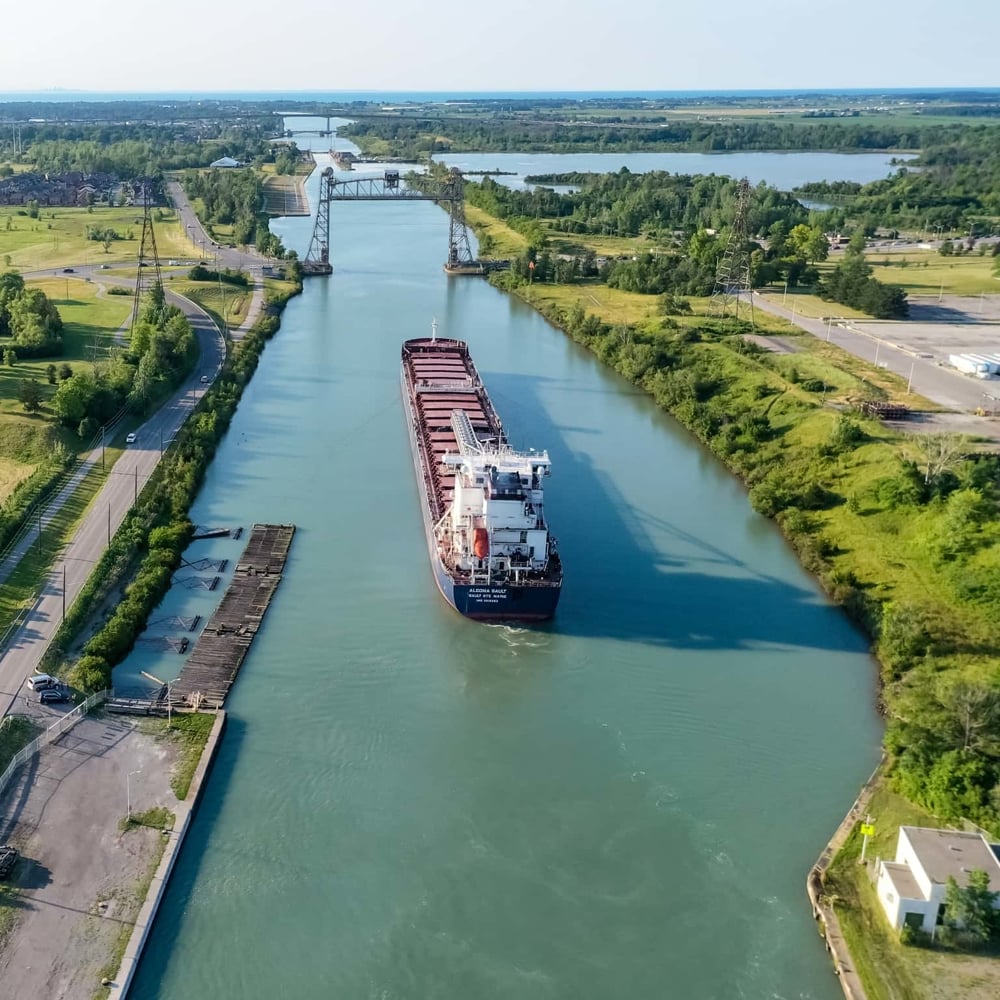Applicability: shipowners, ship operators, ship managers and ship masters.
Since 1 January 2024, the Canadian Carbon Intensity Indicator (CCII) applies to Canadian ships of 5,000 gross tonnage and above operating only within all Canadian waters (including within the Great Lakes and St Lawrence River) or only within all the aforementioned areas and travelling to ports of the United States provided the ship voyages to these ports comprise 50% or less of annual trips.
This applies to the following ship types:
- Bulk carriers and self-unloading bulk carriers
- Tankers
- Ro-ro passenger
- General cargo and ro-ro cargo
- Containerships.
Exclusions
CCII does not apply to ships with Category A designation under the Polar Code nor to government ships.
Domestic ships are also not subject to application of the International Maritime Organisation's (IMO) Energy Efficiency Existing Ship Index (EEXI) requirements.
Background
Transport Canada found through studies that most of the Canadian fleet could not meet the greenhouse gas (GHG) reduction requirements of the IMO CII. This was due to the unique design and operational characteristics of the Canadian fleet, such as deeper draughts, energy-intensive self-unloading operations in ports without shore-side equipment, lock transits, ice escort, shallow water and speed restrictions. All have a negative impact on fuel consumption/energy efficiency compared to the international fleet.
Therefore, the Government of Canada has adopted its own GHG reduction targets, which will require action across all sectors as outlined in the 2030 Emissions Reduction Plan. It was determined that the best approach for the domestically trading fleet was to apply the recently adopted IMO measures while factoring in the unique technical and operational characteristics of the Canadian fleet by applying the CII with unique Canadian reference lines.
Instructions for fuel oil consumption data reporting and CCII
Every applicable domestic vessel’s Ship Energy Efficiency Management Plan (SEEMP) must be updated by the ship’s manager, shipowner or ship operators as per Regulation 26 of the International Convention for the Prevention of Pollution from Ships (MARPOL) Annex VI, noting a revised due date of 31 March 2024.
Lloyd's Register (LR) will verify that the SEEMP is updated in accordance with the provisions of Regulation 26 of MARPOL Annex VI and issue a Confirmation of Compliance to each domestic vessel as per Regulation 5.4 of Annex VI.
Ship’s manager shall submit a fuel oil consumption data report, in the form specified in Appendix IX of MARPOL Annex VI, to LR no later than 31 March of each calendar year (i.e. the data for 2024 is to be submitted to LR by 31 March 2025) and the calculated annual attained CCII. When verifying the annual attained CCII against the required annual operational CCII and for annual reduction rates to be applied, LR will be guided by the Guidelines on Canadian CII Reference Lines. Failure to submit data before 31 March of each year could result in LR not being able to verify the data before the submission deadline to Transport Canada.

For further information
Please contact your account manager first for more details and to discuss your survey and plan approval needs in Canada. See also Transport Canada Ship Safety Bulletin SSB 05/2025.














